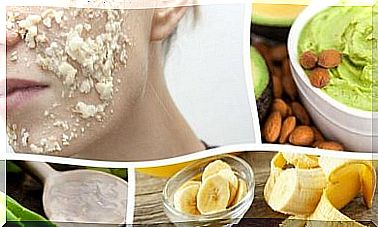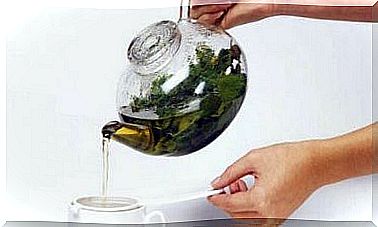Home Remedies For Flea Bites
Although they are tiny in size, fleas can be a very annoying problem. These insects, which move from place to place by jumping, feed on the blood of humans, dogs, cats and other warm-blooded animals.
If we have a pet at home, we may have suffered more than once from its bites, especially on the legs. To avoid this uncomfortable situation, we detail some home remedies that can help relieve itching and speed recovery. Keep reading!
What are fleas like?
Before learning how to treat the bites of these parasites that inhabit domestic animals, it is good that we know some of their characteristics. According to an article in the Electronic Journal of Veterinary Medicine, it is a very small insect, maximum 3.5 mm, which can jump to a height of 33 cm horizontally and 18 cm vertically.
As we mentioned, it feeds on the blood of mammals, especially animals such as cats or dogs. Regarding their preferences, apparently, blood type, body odor, among others, make some people more prone to suffer from these bites.
Fleas have a resistant body, so they survive the nails of animals and, in addition, they lodge in places where they cannot be easily reached, for example, behind the ears or on the head. In people, bites often occur on the legs and feet, the places closest to the ground.

A few seconds after the puncture, it usually causes an inflammation in the skin that worsens if we scratch continuously or do not maintain proper hygiene in the area. Therefore, it is important to consider the following steps:
- Wash the area well with mild soap and water.
- Dry with a fabric that does not shed particles.
- Avoid scratching and apply a gauze or dressing that must be removed several times a day.
- Do not scratch the surroundings of the bite.
Natural remedies for flea bites
Although once the bite occurs there is not much that can be done, the following natural remedies will help reduce the itch. This will prevent you from scratching all the time and getting an infection in the affected area.
aloe vera
One of the most used remedies to soothe itching and burning is aloe vera. According to a review published in the Indian Journal of Dermatology , this plant has antiseptic, anti-inflammatory, healing properties, among others. Therefore, it is considered a good option for flea bites.
What should you do?
- Cut a stem or stalk of aloe vera horizontally and place the part of the gel so that it comes in contact with the welt.
- Hold with gauze or tape for several minutes until the skin absorbs all of the liquid.
Tea
The common tea used in herbal teas can also help relieve flea bites. Apparently, its anti-inflammatory and antibiotic effects are an effective remedy to reduce itching and prevent infections. You can use other types such as black, green, lavender, or chamomile.
What should you do?
- Prepare the infusion as if you were going to drink it.
- Instead of taking it, let it cool and then apply it with a gauze or cloth on the welt.
- If the infusion is in a sachet, you can leave it directly on the skin.

Medicinal plants
If you have basil or calendula leaves at home, feel free to use it to treat inflammation caused by a flea bite. These plants usually have calming effects and can be beneficial in these cases. It’s worth a try!
What should you do?
- Mash some fresh basil and calendula leaves with a little water or essential oil.
- Apply in the form of a poultice.
Oatmeal
Many are the properties that are attributed to oats for skin care. In the case of flea bites, an article from the American Osteophatic College of Dermatology notes that topical antihistamines and antibacterials, combined with warm baths with an oatmeal solution, will help cleanse and soothe the itch.
What should you do?
- Put warm water in a container or fill the tub.
- Then sprinkle in a few tablespoons of oatmeal.
- Dip the affected area or apply with the help of a cotton ball, and leave for a few minutes.
Coconut
Although it is not very common to use coconut in home remedies, this fruit is said to have anti-inflammatory and antibacterial activity . Hence, it can be useful to deal with swelling, which will not take more than two days to disappear, if you use it in the right way.
What should you do?
- Cut a coconut in half.
- Extract the pulp and place it in the blender.
- Use that cream to apply directly to the bites.
- Rub a little and then wrap with a towel or canvas, for an hour.
- Then rinse with lukewarm water.
- Repeat twice a day.
Sodium bicarbonate
While not recommended for daily use on the skin, the Mayo Clinic suggests that this ingredient can relieve redness, itching, and stinging caused by flea bites. Many over-the-counter creams contain baking soda. However, you can also prepare a pasta at home.
What should you do?
- Put a tablespoon of baking soda and a few drops of water in a bowl.
- Mix well until you get a paste.
- Apply to the skin where the flea has bitten you and let it act for 15 minutes before rinsing.

Lemon peel
The lemon and its peel have beneficial properties for health. In fact, it is one of the most widely used natural remedies in popular culture to relieve the itchiness caused by flea bites.
What should you do?
- In a saucepan, place a cup of water and the peel of a lemon. Boil for five minutes.
- Remove from the heat and let it rest until cool.
- Then, apply to the bite with the help of a cotton ball or gauze.
Honey
Honey is another option that can be beneficial if you have suffered from a flea bite. As a review published in Pharmacognosy Research indicates , this natural product has antimicrobial, anti-inflammatory, and healing properties.
What should you do?
- You can apply a little of this ingredient where the flea bit you, letting it act for a few minutes before washing with warm water.
- Another option is to mix four tablespoons of honey with two tablespoons of lemon juice, heat in a saucepan and allow to cool until it is at room temperature. Apply the ointment on the bite, hold with gauze and leave for an hour.
Try these home remedies and you will notice the relief they provide. If you want to prevent fleas from biting you, it is important to maintain proper hygiene at home. But, above all, do not forget to take the necessary measures to keep your pets clean and free of these insects.









